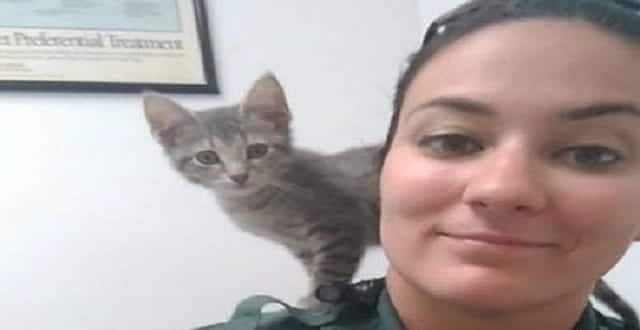Many people think of cats as lazy animals who spend their days resting and napping in the sunshine. With such an easygoing lifestyle, what could felines possibly have to be stressed about?
But there are many situations which can cause stress for kitties — everything from moving to a new home to the sudden appearance of a vegetable like a cucumber behind them at feeding time.
While occasionally experiencing stress is normal for a cat, constant or severe anxiety can be a very serious problem, and it’s quite easy to overlook symptoms or attribute them to other issues.
Here are the signs of anxiety in cats:
Hiding
Aggression
Excessive vocalization
Lethargy
Vomiting
Changes in appetite or weight
Eliminating outside the litter box
Compulsive behaviors such as excessive grooming
Destructive behavior like furniture scratching
Following owner from room to room
The causes of anxiety
The source of human stress can be attributed to countless psychological, physical and environmental factors, and the same rings true for cats. Introducing a new spouse or pet to the family can be amazingly stressful for cats — and so can something as simple as not changing the kitty litter often enough.
However, there are other certain factors which may contribute to greater anxiety in felines. For example, cats that have been abused or rehomed several times are definitely more likely to suffer from anxiety.
Cats who were not well socialized during their formative kitten years are also prone to it. It’s important to expose a kitten to variety of social situations and environments before the cat has reached 14 weeks of age. Kittens which are kept isolated may be less social and more fearful when they finally reach adulthood.
The practice of spaying and neutering could also play a key role. Some studies have found an increase in shyness in cats after spaying and neutering, particularly when these procedures are done at a young age.
Genetics may also be in part to blame. Often feral cats that are fixed — through trap-neuter-return programs, for example — are those animals which are most social and friendly. Some experts have suggested that this creates an environment where more the more aggressive members of the species are capable of reproducing, resulting in kittens prone to anxious behavior.
What is separation anxiety?
Cats with separation anxiety show distress and behavioral problems when separated from their owners or a companion animal with whom they’ve bonded with.
Cats suffering from this type of anxiety often follow their owner from room to room and pout or hide when their owner prepares to leave the home. While their owner is away, the cat may even refuse to eat, relieve themselves outside the litter box or engage in compulsive or destructive behavior. Upon the person’s return, the cat may be overly excited in greeting their owner.
Felines that have a history of abandonment or rehoming are particularly prone to this class of anxiety.
How you can treat your cat’s anxiety
If your cat is exhibiting anxious behavior, you should talk to your veterinarian. Your vet will first do a physical examination to rule out any other conditions which may be causing the behavior.
If your cat is diagnosed with anxiety, medications may be prescribed. Your vet will also likely make some recommendations on how you can alleviate your cat’s anxiety. He or she may even suggest that you work with a certified animal behaviorist. Yes, someone like Jackson Galaxy.
Often, making simple changes to your routine or the environment may relieve a cat’s anxiety. For example, if your cat suffers from separation anxiety, providing your pet with toys which distract, such as puzzle feeders, can be beneficial. Such toys should be left out when you leave and taken away when you return home.
Creating a more stimulating environment can also be very helpful. Providing cat trees to climb, boxes to play in and a perch by the window will help keep your cat physically active and mentally stimulated until you come home.
You may also want to consider adopting another kitty to keep your cat company, but keep in mind that not every cat will be comfortable with the addition of a new animal. This may end up making some kitties even MORE ANXIOUS.
Most importantly, don’t respond to an anxious cat by yelling or punishing your cat or by locking the animal in a separate room away from you. Reacting negatively like this will only make a cat’s feel worse.
Photos by: Richard Schramm and Khamidulin Sergey/Shutterstock




